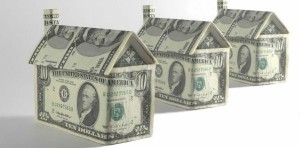 Ever wonder about the best way to handle certain financial needs? Liz Weston for LA Times Business offers insight into these three situations: hospital bills, home ownership, and retirement savings. Read more for quick tips that can help you make the most of your money. For example, did you know that most hospitals offer financial assistance at low or no interest to patients who qualify?
Ever wonder about the best way to handle certain financial needs? Liz Weston for LA Times Business offers insight into these three situations: hospital bills, home ownership, and retirement savings. Read more for quick tips that can help you make the most of your money. For example, did you know that most hospitals offer financial assistance at low or no interest to patients who qualify?
Tag: home ownership
Student Loans May Affect Homeownership
 Rising tuition costs and student debt are becoming significant factors in the ability of millennials to buy houses. An analysis published by the Federal Reserve Bank of New York last year suggests that student debt was responsible for up to 35 percent of the decline in homeownership among people between the ages of 28 and 30 from 2007 to 2015. (Homeownership for people under 28 tends to be low.). With many young adults leaving college with large bills, even landing good jobs isn’t enough to pay their debt in a timely manner.
Rising tuition costs and student debt are becoming significant factors in the ability of millennials to buy houses. An analysis published by the Federal Reserve Bank of New York last year suggests that student debt was responsible for up to 35 percent of the decline in homeownership among people between the ages of 28 and 30 from 2007 to 2015. (Homeownership for people under 28 tends to be low.). With many young adults leaving college with large bills, even landing good jobs isn’t enough to pay their debt in a timely manner.
How Student Debt Can Ruin Home Buying Dreams
Early Retirement?
 Do you dream of retiring at 55? Ever thought about what it would take to actually make this a reality? For many it means cutting all extraneous costs such as meals out or travel, but there are other ways to help take a few years off your career. Maya Kachroo Levine for Forbes highlights these strategies to begin in your twenties:
Do you dream of retiring at 55? Ever thought about what it would take to actually make this a reality? For many it means cutting all extraneous costs such as meals out or travel, but there are other ways to help take a few years off your career. Maya Kachroo Levine for Forbes highlights these strategies to begin in your twenties:
–Don’t start spending more because you’re making more
–Start saving more, and maxing out multiple retirement accounts
–Look for side work that you can sustain in the long term
–Focus on owning your home outright
–Find a sacrifice that you’re willing to make that most people deem, “necessary”
–Set up passive income streams.
For more, read her complete article, 6 Steps You Can Take In Your 20s To Help You Retire Before 60.
Repair or Improvement?
 What is the difference between a home repair and a home improvement? As defined by the IRS, an improvement lasts for more than one year and adds value to your home. There are exceptions, such as when the upgrade is no longer part of your residence. (Ex. You installed wall-to-wall carpet years earlier and then replaced it with wood flooring.). In cases of fire damage and natural disasters, all work applies, from the smallest repair to the largest addition. Knowing these details is especially important when you plan to sell your home because it may help reduce the taxes you owe on profit.
What is the difference between a home repair and a home improvement? As defined by the IRS, an improvement lasts for more than one year and adds value to your home. There are exceptions, such as when the upgrade is no longer part of your residence. (Ex. You installed wall-to-wall carpet years earlier and then replaced it with wood flooring.). In cases of fire damage and natural disasters, all work applies, from the smallest repair to the largest addition. Knowing these details is especially important when you plan to sell your home because it may help reduce the taxes you owe on profit.
Tax differences between home repairs & home improvements
Owning a Piece of The Dream?
 Grow up, get married, own land…
Grow up, get married, own land…
That’s been the American dream for ages. Owning a home or piece of property has always been viewed as a sign of wealth and as a good investment. What if that is no longer true? Robert J. Shiller for the Economic View section of the New York Times brings this idea to light in his article, Why Land and Homes Actually Tend to Be Disappointing Investments. Shiller points to many causes but one of the most intriguing is the decrease for demand of urban land, specifically home plots; with the development of micro-housing. A current trend that is changing the way many live in “downtown” areas. Where this movement will be in ten or even twenty years still remains to be seen, but if it goes the way Shiller predicts, the need for rural land will be so low that farmland may be converted back into wildlife preserves.